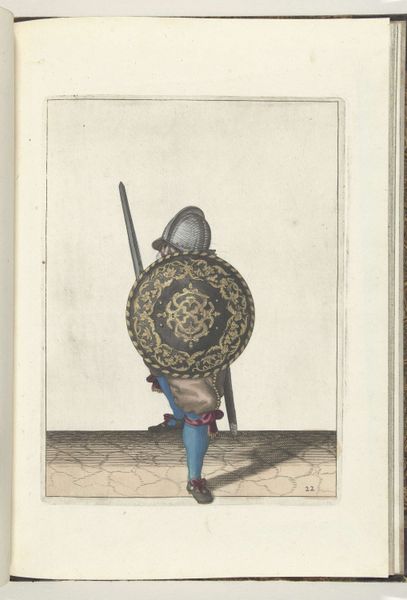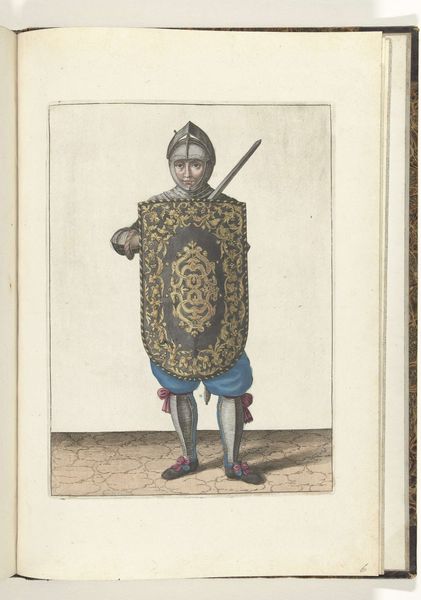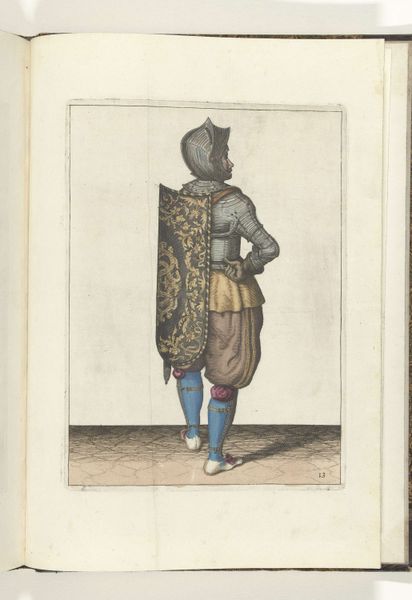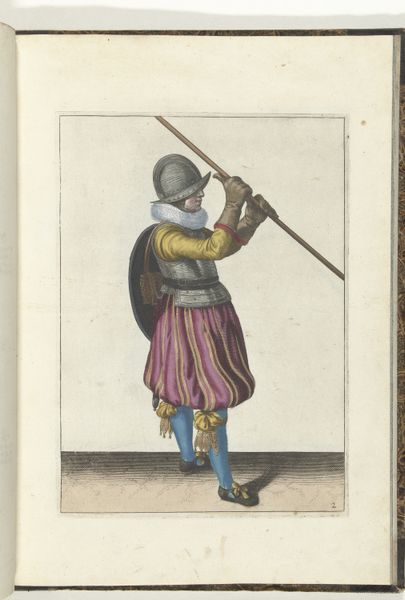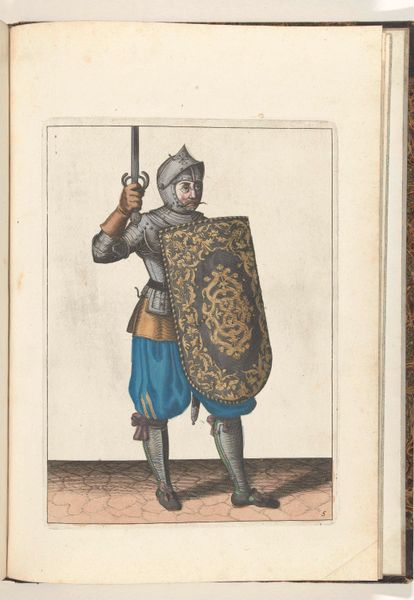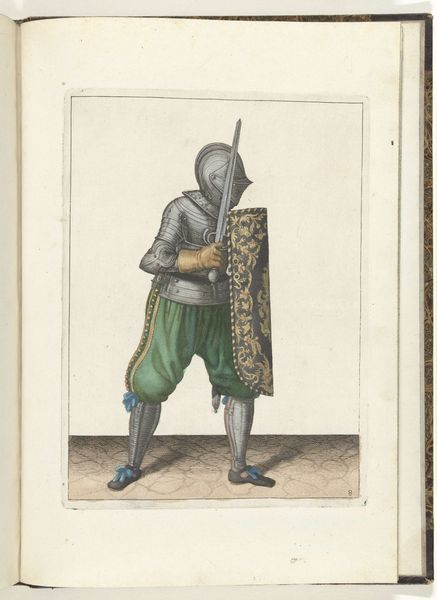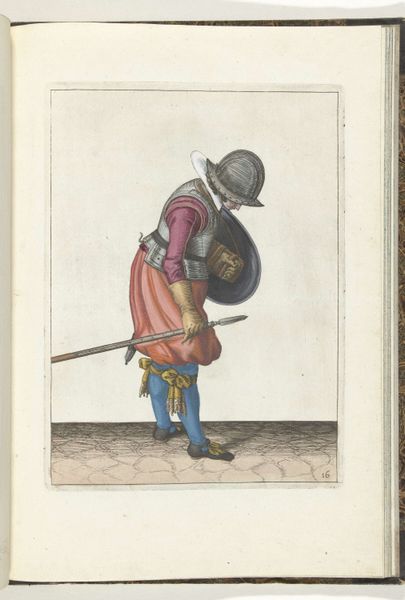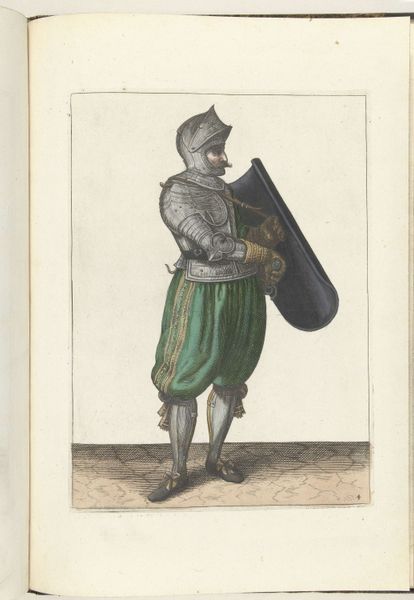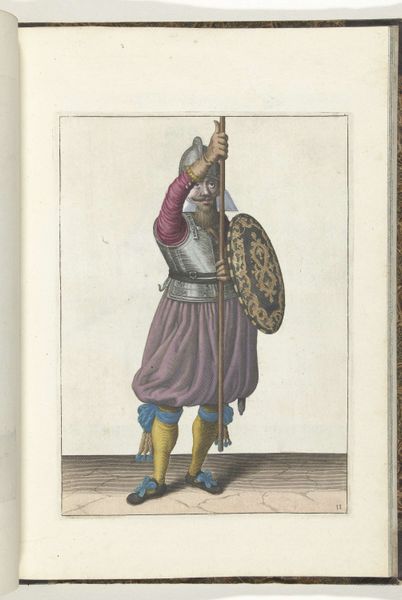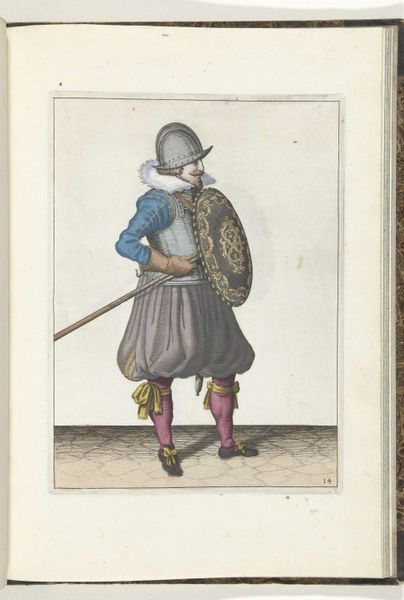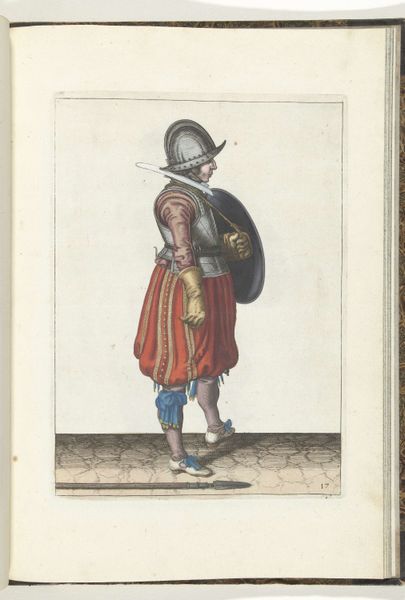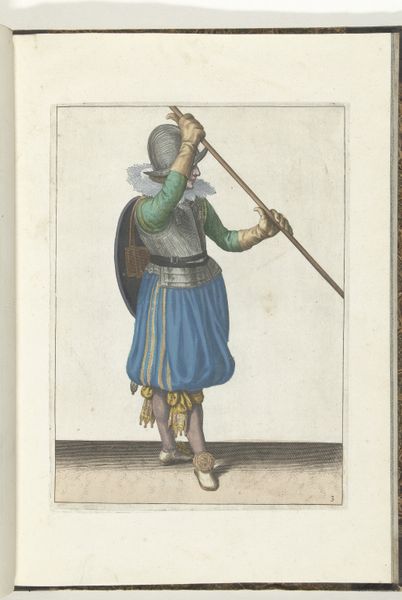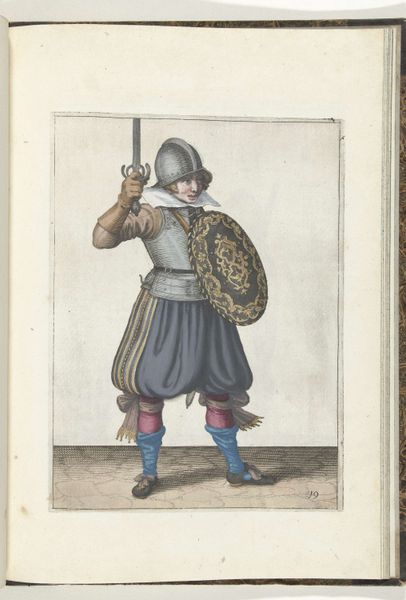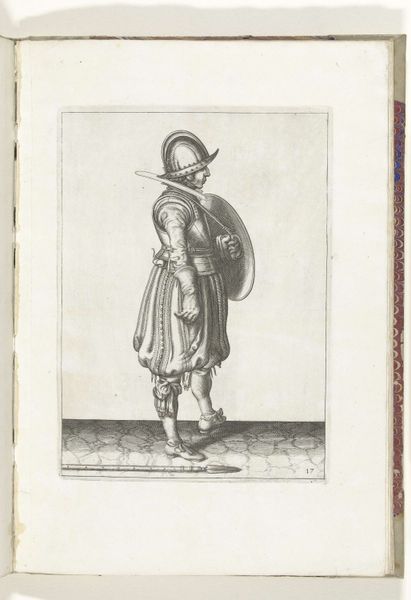
De exercitie met de targe en rapier: hoe de soldaat zich moet verdedigen met de targe rustend tegen de linkerknie en linkerschouder, de getrokken rapier in de hand, van voren gezien, (nr. 9), 1618 1616 - 1618
0:00
0:00
#
aged paper
#
toned paper
#
weapon
#
sketch book
#
personal sketchbook
#
coloured pencil
#
sketchbook drawing
#
watercolour bleed
#
watercolour illustration
#
sketchbook art
#
watercolor
Dimensions: height 255 mm, width 187 mm
Copyright: Rijks Museum: Open Domain
Editor: So this watercolour illustration, "De exercitie met de targe en rapier" by Adam van Breen, created around 1616-1618, feels really…flat. The figure is quite frontal and the colour palette very restricted. What do you notice when you look at it? Curator: Precisely. Observe how the artist prioritizes form and line over depth and volume. The composition directs our attention to the intricate details of the shield and armour. Consider the stark contrast between the textured surface of the shield and the smoother areas of the helmet and rapier. Do you perceive how this contrast contributes to the overall structure? Editor: Yes, the texture definitely draws the eye. It's interesting how the details are almost graphic, even illustrative, in their precision. What would you say that contributes to, formally? Curator: Notice the deliberate two-dimensionality. The use of watercolor, with its inherent tendency to bleed and flatten, reinforces this effect. Van Breen isn’t attempting to create a realistic depiction but rather to present a study in form and pattern. Semiotically, how do these formal choices communicate meaning beyond the subject matter? Editor: That's fascinating! I guess I was initially put off by the lack of depth, but seeing it as a deliberate choice to focus on the details of shape and pattern changes everything. Curator: Indeed. It invites us to contemplate the inherent qualities of the materials and the artist’s manipulation of them to convey meaning, without necessarily adhering to representational accuracy. It's about the art object itself and how it signifies through its very structure. Editor: That gives me a lot to think about. I went from thinking this was just a simple illustration to appreciating how much visual information is packed into such a seemingly plain image! Curator: Precisely. Form informs content, and vice versa.
Comments
No comments
Be the first to comment and join the conversation on the ultimate creative platform.
